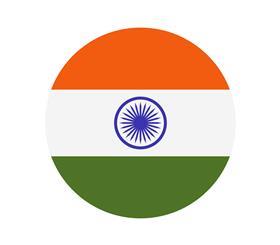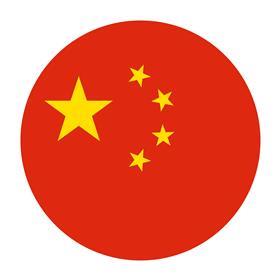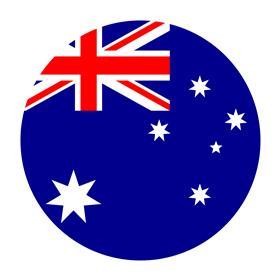IBC365 looks at the latest developments in the rollout 5G in across the globe.
As well as promising the faster delivery of programmes to mobile devices, 5G is expected to enable leaps in content creation through advances such as remote production.
The new technology and network standard will also mean new experiences possible in augmented reality (AR), virtual reality (VR), connected cars and devices in the smart home.
According to research by GSMA, which represents mobile operators worldwide, 5G is forecast to account for as many as 1.2 billion connections by 2025, likely to cover one-third of the world’s population.
We take a look at some of the last 5G developments.
- Read more 5G: Are we nearly there yet?
The United Kingdom
- The UK government announced in July its intention to invest in a nationally coordinated programme of 5G testbed facilities and trials as part of its commitment to boost the UK’s digital infrastructure. It has set ambitious targets for full fibre and 5G development including reducing the cost of fibre broadband, remote rural prioritised for funding, full fibre switchover and increase the spectrum for innovative 5G services. The Independent Networks Cooperative Association (INCA) conference last week united Government and Ofcom representatives with members including Vodafone and Sky to debate the UK’s 5G future after the announcement of the UK chancellor’s £250 million boost for broadband.
- The UK’s largest mobile network EE announced this week its plan to launch 5G across 16 cities during 2019 and switching on the next-generation network in the busiest locations including London, Cardiff, Edinburgh, Belfast, Birmingham and Manchester as phase one. BT Group Chief Executive said in a statement the increase in reliability and speed is another milestone. “We have an ambition to connect our customers to 4G, 5G or Wi-Fi 100% of the time.”
- UK’s network provider Three signed an agreement with SSE Enterprise Telecoms earlier this year to connect Three’s network with BT local telephone exchanges as part of its 5G network preparation. Three estimated this partnership will enable its capacity to grow more than twenty fold. Three announced the promise of 5G would have the capacity to cope with demand of usage meaning households could save by dropping fixed-line home broadband. While its Chief Technology Officer Bryn Jones said: “Fibre is essential to the UK’s digital future and more needs to be done to improve its availability to ensure that the UK benefits from 5G at the earliest opportunity.”
The United States

- Last month, at Magic Leap’s developer conference, AT&T announced plans to build a 5G zone at the company’s Florida campus. According to the telco “5G connectivity will give developers and creators the ability to test devices and applications on a 5G network right where the work is being done”. AT&T is the exclusive wireless distributor to consumers in the US of Magic Leap One, the glasses are a wearable computer that enriches real world experiences with digital content, otherwise not possible without the introduction of the 5G network.
- US carrier Verizon currently offers 5G broadband internet in Houston, Texas, Sacramento, California, Indianapolis, Indiana and Los Angeles, California which launched 1 October boasting no data caps and as an initial 5G member perks include free YouTube TV three month trial, free Apple TV 4K or Google Chromecast Ultra as well as a free router when the 5G upgrade rolls out in 2019. Chief Finance Officer Matthew Ellis announced on Wednesday as soon as the global standards for 5G technology is rolled out the wireless carrier plans to target a broader audience for its new 5G home broadband product.
- Providers in the US including AT&T, T-Mobile, Sprint and Charter are forging ahead with the 5G race for delivery, all at various stages of commercialisation. Charter is yet to confirm a wireless offering while AT&T launched the 5G Evolution as groundwork for deploying complete 5G, with plans to hit 400 markets by the end of the year.
Chile
The largest telecommunication company in Chile, Entel, announced its partnership with Ericsson at the end of October to bring 5G wireless services to its customers with phases rolling out throughout 2018 and 2019. As the first Latin American operator to deploy Massive MIMO nationwide it is set to fully virtualise network services for voice, IP and enrich real-time communication services.
India

- The Indian government has announced its plan to roll out state-of-the-art 5G telecom services in the next four years in an attempt to catch up to the pace of rollout in more developed markets. Telecom Secretary Aruna Sundararajan said in an interview: “We are not there yet,” adding that the complete roll-out of 5G will be done by 2022. “5G won’t be driven by supply, it’ll be driven by demand and the rest of industry needs to wake up to this.”
- In September, the Department of Telecommunications asked equipment vendors including Cisco, Samsung, Ericsson, Nokia and Huawei to collaborate on 5G-technology trials across the country. However, the Indian 5G spectrum has not yet been allotted. Nokia Head of Marketing and Corporate Affairs Amit Marwah for the Indian division expressed concerns in an interview of the nation being left behind in the adoption of 5G.
Germany
- In May this year, Germany successfully demonstrated Europe’s first 5G data connection over a live network using a Deutsche Telekom 5G cluster with more than 70 antennas which fully supported the new communications standard in real-world conditions.
- Yesterday, the German government decided to release the entire 3.4 to 3.8 GHz band (C-band) making available all of the spectrum for 5G, showing Germany’s commitment as a global 5G leader. However, Deutsche Telekom Chief Executive Tim Hoettges warned earlier this month in a conference call the disaster on its home market if politicians botch the 5G plans on network coverage and buildout. He said: “I am not going to take part in the further inflation of targets. If we carry on like this, we will face an industrial policy disaster.”
- Expected to start its 5G auctions in early 2019, senior German officials have announced a final plea to the government to reconsider using Chinese firm Huawei from building the 5G infrastructure with concerns this could compromise national safety. Huawei is set to open a new information security lab in Bonn this week to enable source code reviews ahead of the 5G auction. While the German government is keen to maintain its close trade and investment with Beijing based manufacturer without compromising its cybersecurity, officials are not convinced following the US and Australian governments ban on Huawei constructing its 5G networks.
China

- The world’s first 8K VR live broadcast was demonstrated by Chinese Mobile 5G innovation Centre along with manufacturer Huawei at the fifth World Internet Conference at the start of this month. The 5G network enabled increased display resolution for a true-to-life immersive experience according to Zhejiang Mobile who predicts VR broadcasting to rise as a new video format to be widely adopted.
- Despite the 5G network not yet being in full swing, China’s Ministry of Industry and Information Technology Head of IMT-2020 5G wireless working group Su Xin said in an interview it will begin research into 6G development in 2020 with commercialisation launching in 2030 with the accelerated commercialisation of 5G, three major commercial mobile operators in China plan to achieve 5G pre-commercial use during 2019.
Sweden and Estonia
- Swedish-Finnish telecom operator TeliaSonera, and Swedish telecommunications giant Ericsson announced in January 2016 that Stockholm and Tallinn in Estonia would be the first cities to have the new wireless mobile technology, 5G, rolled out in 2018. Delivering on its promise the first 5G pilot network was launched at Tallin University of Technology in September demonstrating how 5G will improve traffic, communications and smart devices.
- While 800 delegates in Stockholm saw demonstrations from manufacturers Telia, Ericsson and Intel who showcased the use of 5G to deliver AR using the low latency and high data rates of 5G. Per Narvinger, Head of Ericsson Northern and Central Europe, said: “5G use cases are moving from the realms of the imagination to the realms of reality.”
- In other Ericsson news, the company launched a new division called Edge Gravity – a semi-autonomous unit within Ericsson that “operates a global edge cloud network that links together a core network of data centres with the last-mile networks of more than 80 partners that include cable operators, telcos and mobile service providers.”
Australia

- Mobile operators Telstra and Optus have both committed to selling commercial 5G services next year with Vodafone following in 2020. Optus will launch its 5G services in Canberra and Brisbane in January 2019 with other major cities receiving coverage by March. While Telstra’s 5G Innovation Centre will help support the early commercial development.
- The rollout of Australia’s 5G telco network has come riddled with concerns about national security according to Australia Signals Directorate Director General Mike Burgess who spoke about the opportunities and security risks in using China’s Huawei. He said: “The distinction between core and edge collapses in 5G networks. That means that a potential threat anywhere in the network will be a threat to the whole network.” Unlikely to impact the 5G rollout, Burgess’ speech has opened the dialogue on security and espionage.

























No comments yet